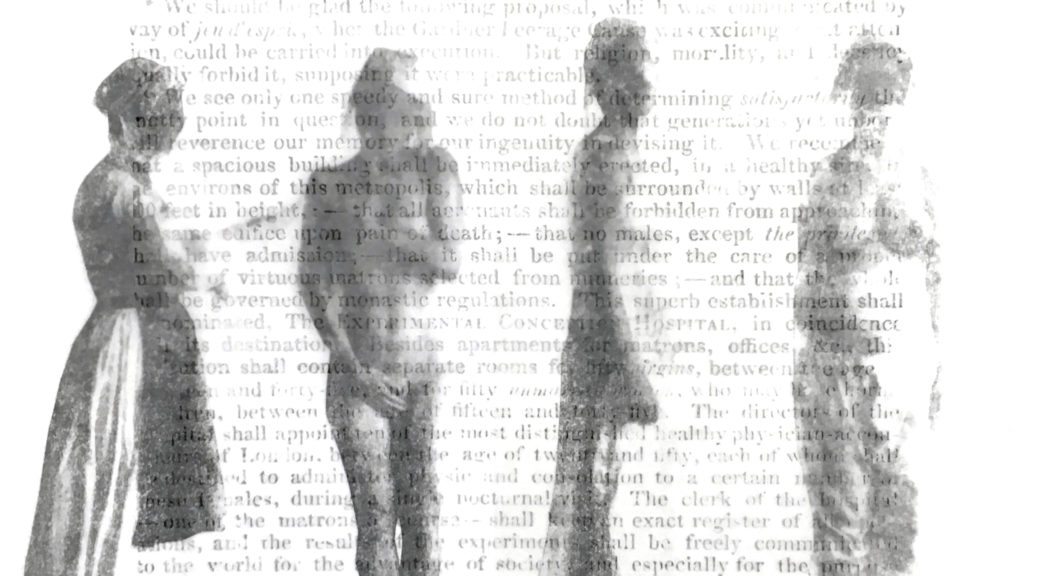In the past medical practitioners were in the same boat as their patients when it came to diagnosing early pregnancy. If you’ve ever wondered ‘am I pregnant?’ you’ll know that it’s not always that straightforward to ascertain. Some people, of course, know it straight away: their symptoms are really strong and when they do a pregnancy test it’s confirmed. Others experience things differently. They might not be sure at all but getting a positive pregnancy test sorts it out for them. Those that get a negative result may have to wait a little longer to find out but, eventually, a negative is a negative and they can be sure. The ambiguity of early pregnancy is capped for us, in a way that it wasn’t in the past, by reliable tests and sonography.
Just like their patients, modern medical practitioners also have a wait before they can rely on the tests and scans. In that wait they may well feel for their patients, recognizing that the wait isn’t very easy especially if they’re waiting like this every month for years indefinitely. They don’t, though, endure the wait in quite the same way; they have lots of patients and no doubt their own preoccupations. The cap provided by modern testing technologies means that they are removed from a considerable predicament which medical practitioners faced in the past. Of course, practitioners’ concerns are different from those of their patients. Whilst some of them worried about pregnancy diagnosis because they wanted to help their patients, others worried for themselves – for their medical reputations – and others worried for society at large. After all, if you can’t diagnose pregnancy it is hard to establish paternity and so ensure correct title and property transfer, those things which underpinned social, economic and political life. In societies which put a lot of store in blood lineage, a woman’s curiosity about her condition and her future were much less important than male anxieties about whether their children were their children.
Sadly we don’t have as much historical evidence as we would like about the feelings of ordinary people who were trying to conceive and not having much luck. But what we do have is quite extensive evidence of the difficulty that practitioners report about trying to diagnose pregnancy. Looking at that evidence exposes as age-old some of the perplexities within the experience of trying to conceive and, because of this, thinking about those difficulties in the past may help us to think through our own today. Sometimes it’s easy to think that in our modern times we are peculiarly impatient, peculiarly unused to desires not being realized, peculiarly anxious to know about our futures; it’s easy to imagine that people in the past accepted unknowns more readily than us. However, that’s not what the archive shows. People in the past were just as eager as we are to know things and they thought hard about how they could to come to know them.
The Experimental Conception Hospital is a fictional laboratory invented in relation to a legitimacy case in 1825-6. It is an extraordinary idea about how conception might be pinpointed in a time before the relationships between menstruation, ovulation and the processes of conception were fully known. Our project has been working on this fantasy institution in different ways, writing an account of it for publication but also making art work which takes a different look at the Hospital. We have put together a little 5 minute film (below). The images are part of a long piece of artwork which Anna Burel is making to present the Hospital’s 100 female experimental subjects. They are in different stages of undress and take up different postures. They are waiting, queueing perhaps. They are faceless, wearing masks. They are just numbers. The sound gives the full text of the Hospital’s description, detailing how it will be arranged. It is a dream institution which will resolve the questions of law raised by the difficulties of pregnancy diagnosis. It is imagined from a male perspective and gives no thought at all to the people incarcerated and experimented on. It is a dark Gothic science-fiction, an erotic fantasy about walling up women.




One thought on “The Experimental Conception Hospital”